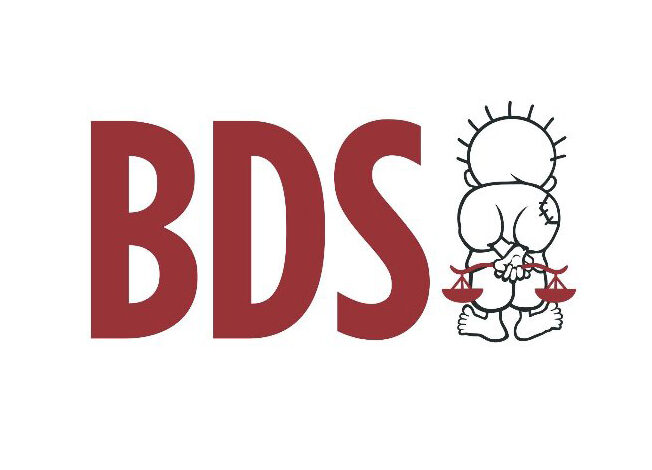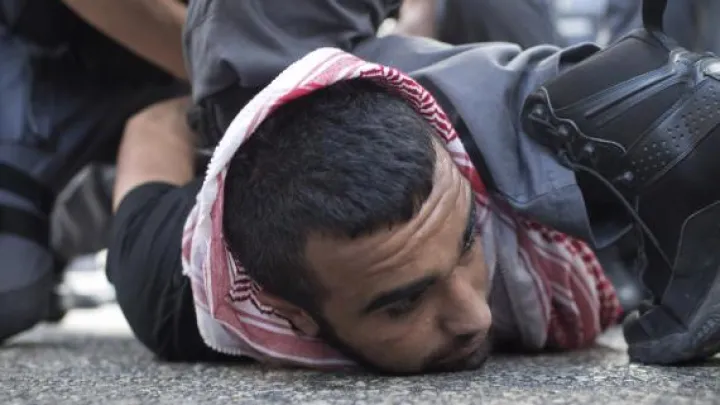BDS movement : The Power of Global Resistance for Palestinian Freedom

In a world where grassroots movements increasingly impact the political scene and even transform it, numerous movements have emerged advocating for justice and promoting peaceful resistance against the injustices faced by various peoples. Among these, one such movement is the Boycott, Divestment, and Sanctions (BDS) movement, Palestinian in origin but global in reach. BDS seeks to boycott Israel, withdraw investments, and impose sanctions until it has become a symbol of the struggle for Palestinian rights.
What is the BDS movement?
The Boycott, Divestment, Sanctions (BDS) movement is a Palestinian-led campaign that demands freedom, justice, and equality. It asserts that Palestinians deserve the same rights and freedoms as everyone else, striving to uphold these fundamental principles through non-violent pressure and international solidarity.
The History and Origins of BDS Movement
To understand its origins, we need to go back 19 years to July 9, 2005—the date the movement was launched by 170 Palestinian unions, refugee networks, women’s organizations, professional associations, popular resistance committees, and other Palestinian civil society bodies.
Inspired by the South African anti-apartheid movement, the BDS movement calls for action to pressure Israel to comply with international law.
Importantly, it emphasizes that collective pressure from ordinary people is essential to push governments to hold Israel accountable, ultimately helping to create a just peace founded on freedom, justice, and equality.
BDS’s Three Key Demands
Since its beginning, the BDS movement has aimed to end international support for Israeli violations of international law by forcing companies, institutions, and governments to change their policies. As a result, Israeli companies and institutions may become isolated, making it more difficult for Israel to oppress Palestinians.
The growth and success of the BDS movement sends a clear message to world governments, highlighted by its three key demands:
1. Ending its occupation and colonization of all Arab lands
As part of the military occupation, Israel steals land and forces Palestinians into ghettos, surrounded by checkpoints, settlements, watchtowers, and an illegal apartheid wall. Consequently, the movement calls on Israel to bring an end to its occupation of the territories it captured during the 1967 War.
This includes the West Bank, the Gaza Strip, and East Jerusalem. Additionally, it demands the dismantling of the separation wall, which is seen as a barrier to peace and a symbol of the ongoing occupation. Ultimately, the goal is to ensure compliance with international law and to end the occupation.
2. Recognizing the fundamental rights and full equality of Palestinian citizens
One-fifth of Israel’s citizens are Palestinians who remained inside the armistice lines after 1948. They are subjected to a system of racial discrimination enshrined in more than 50 laws that impact every aspect of their lives. Therefore, this demand aims to ensure that Arab-Palestinian citizens are granted full equality and are protected from discriminatory practices and violence.

3. The Right of Return for Palestinian Refugees
Israel has pursued a strategy to expand its territorial control and displace as many Palestinians as possible. As a result, over 7.25 million Palestinian refugees are denied the right to return to their homes. The movement advocates for the recognition of their right to return, as outlined in United Nations General Assembly Resolution 194, which calls for addressing the plight of refugees displaced since 1948.

Strategies of the BDS Movement
Boycotts
The movement aims to boycott Israeli companies and those who support them. Furthermore, this strategy extends beyond economics to include academic, sports, and cultural boycotts of products or institutions that profit from the injustices faced by the Palestinian people.
Divestment
Campaigns urge banks, local councils, churches, pension funds, and universities to divest from the State of Israel, as well as from all Israeli and international companies that support or sustain Israeli apartheid.
Sanctions
The sanctions strategy of the BDS movement seeks to apply international pressure on Israel through economic, military, and diplomatic means. This includes urging governments to impose trade restrictions and arms embargoes, promoting divestment from Israeli companies, and advocating for diplomatic isolation and cultural and academic boycotts. In addition, the movement calls for suspending Israel’s membership in international forums such as UN bodies and FIFA.
Global Spread of the BDS Movement
The movement has gradually achieved a series of milestones globally since its launch—from the East to the West. For example, it has spread from UK campuses and Egyptian trade unions to the Bolivian government. The movement has gradually achieved a series of milestones globally since its launch—from the East to the West. For example, it has spread from UK campuses and Egyptian trade unions to the Bolivian government. It’s worth noting that G4S provides security services and equipment to Israeli checkpoints, illegal settlements, and prisons where Palestinian political prisoners are held without trial and subjected to torture.
Cultural Boycott and Celebrity Support
On the cultural front, thousands of artists and cultural figures—including Roger Waters, Marcel Khalife, and Alice Walker—support the cultural boycott of Israel. Stars such as Lauryn Hill, Elvis Costello, and Vanessa Paradis have canceled shows in Israel following requests from the BDS movement.
Government and Diplomatic Actions
Meanwhile, the Kuwaiti government blacklisted 50 companies targeted by the BDS movement as a result of campaigning by activists in Kuwait and the Palestinian BDS National Committee.
In solidarity, Chile suspended free trade agreement talks with Israel during its 2014 attacks on Gaza, and Bolivia and Venezuela have cut diplomatic ties with Israel.
BDS stands as a testament to the enduring power of global solidarity in the fight for Palestinian freedom. It represents more than just a movement—it is a growing symbol of the broader struggle against oppression, uniting diverse voices worldwide. As such, it continues to challenge the status quo. BDS reflects the possibility of achieving meaningful change through persistent, peaceful resistance.
The journey toward justice may be long, but the collective strength behind the movement serves as a powerful reminder that the pursuit of freedom is a cause that transcends borders.
